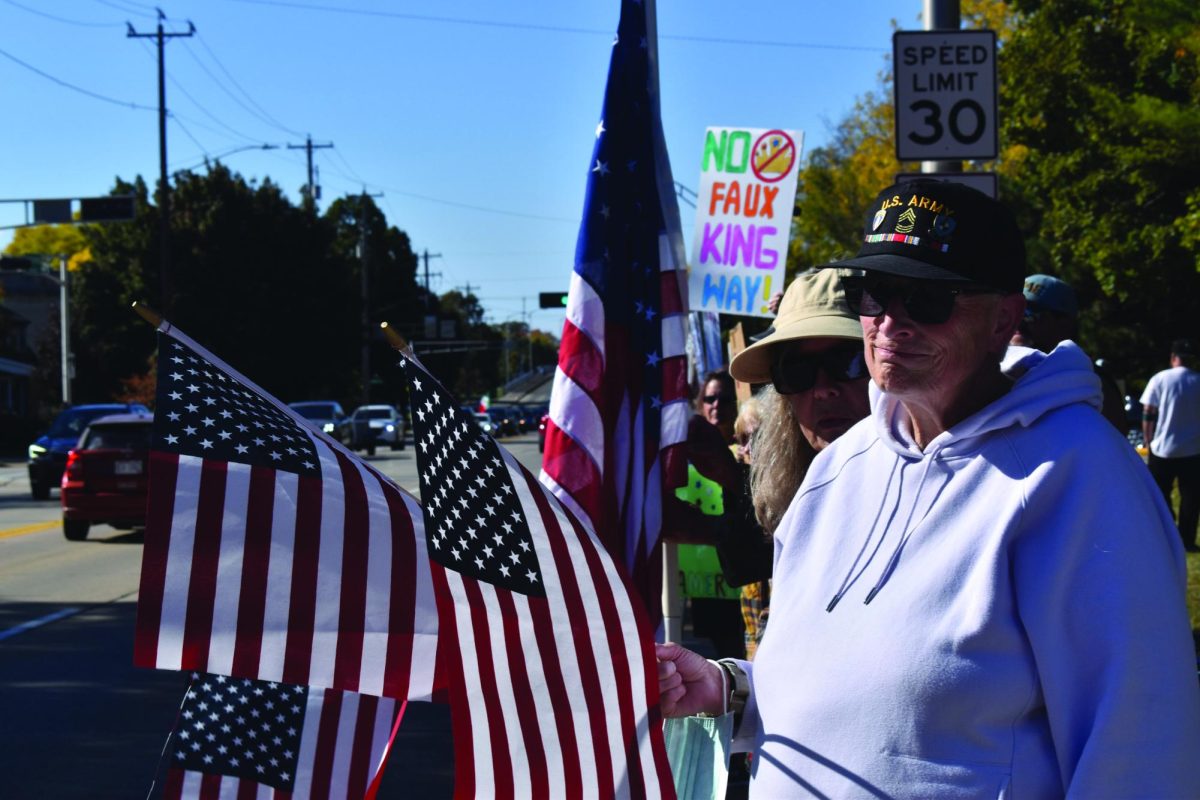A presentation on the legacy of Black Thursday was held Wednesday to talk about the history of the “Oshkosh 94” and how the event impacted UWO’s future.
“[Black Thursday is] one of the more trying and difficult times in the modern history of this University,” history professor Stephen Kercher said. “But it left us with a legacy that is complicated, and one that we need to be very mindful of.”
On Nov. 21, 1968, 94 African-American UWO students gathered in the president’s office at Dempsey Hall with a list of written demands concerning equality on campus.
In his presentation Kercher said the students’ demands included new courses about African-American history and literature, as well as fair treatment on campus.
After their demands were denied by former UWO President Roger Guiles, students participated in a brief act of vandalism, tearing apart the office.
These students, known as “The Oshkosh 94”, were expelled following the incident, and were not allowed to pursue higher education in the UW System until years later.
Kercher said the event was life changing for these students, especially because only a few of them returned to college to finish their degrees.
“The fact that African-American students came back to this University and helped inspire future generations of students tells us something about the legacy of Oshkosh and of Black Thursday,” Kercher said.
Student Ronisha Howard said students should be aware of Black Thursday due to historical significance to UWO.
“It’s important for us to know the events that happened, not just African-American students, but any student attending UW Oshkosh,” Howard said. “It’s vital to understand the history of Oshkosh and what exactly happened during the past so we can understand what not to do in the future.”
Two members of the original Oshkosh 94 protesters, Wanetta Hazelwood and Sheila Knox, attended the discussion and answered student questions afterwards.
Hazelwood said they were afraid to come back to Oshkosh at first due to what they went through.
“It was such a bad experience and it still stays with me in the back of my mind,” Hazelwood said. “It was hard at first to come back to Oshkosh.”
Knox said she has fought against discrimination all her life, and continues to speak out in any way she can.
“We speak out, not in a formal way, but in our actions, in our words, and in whatever we do in the jobs that we take,” Knox said “We speak out against discrimination and unfairness every day of our lives.”
Kercher said discussing Black Thursday is a key part of Black History Month on campus.
“I think there is a small, hopeful and encouraging side to the story,” Kercher said. “That we’re doing this, and that we are using the legacy of this event to inform ourselves about what happened in the past, and to make us more clear minded about how we see things today.”
Knox said progress has been made since Black Thursday, but more can be done.
“Listen, talk, communicate, show compassion and respect for one another,” Knox said. “That would have prevented the events.”








